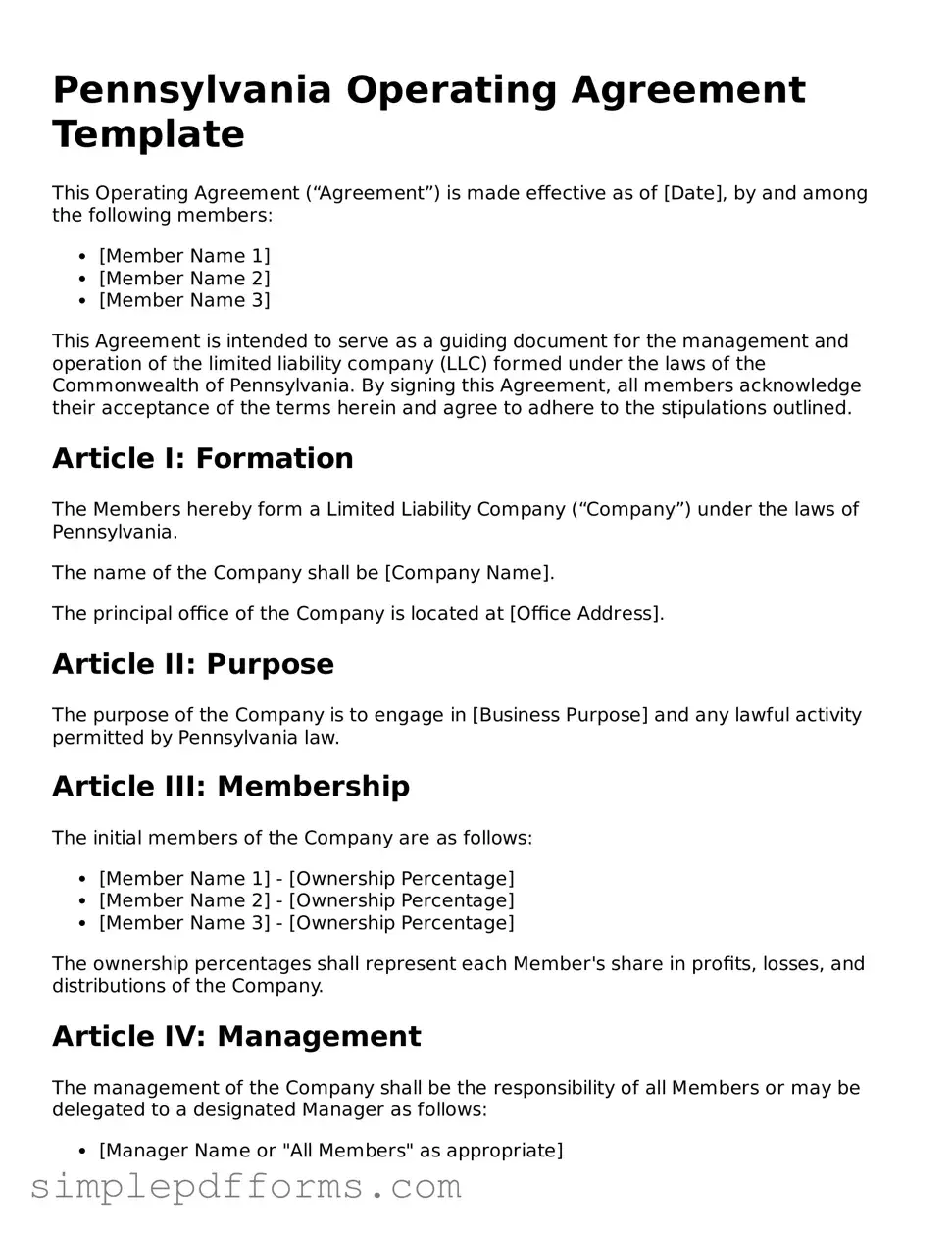Pennsylvania Operating Agreement Template
This Operating Agreement (“Agreement”) is made effective as of [Date], by and among the following members:
- [Member Name 1]
- [Member Name 2]
- [Member Name 3]
This Agreement is intended to serve as a guiding document for the management and operation of the limited liability company (LLC) formed under the laws of the Commonwealth of Pennsylvania. By signing this Agreement, all members acknowledge their acceptance of the terms herein and agree to adhere to the stipulations outlined.
Article I: Formation
The Members hereby form a Limited Liability Company (“Company”) under the laws of Pennsylvania.
The name of the Company shall be [Company Name].
The principal office of the Company is located at [Office Address].
Article II: Purpose
The purpose of the Company is to engage in [Business Purpose] and any lawful activity permitted by Pennsylvania law.
Article III: Membership
The initial members of the Company are as follows:
- [Member Name 1] - [Ownership Percentage]
- [Member Name 2] - [Ownership Percentage]
- [Member Name 3] - [Ownership Percentage]
The ownership percentages shall represent each Member's share in profits, losses, and distributions of the Company.
Article IV: Management
The management of the Company shall be the responsibility of all Members or may be delegated to a designated Manager as follows:
- [Manager Name or "All Members" as appropriate]
Decisions shall be made by a majority vote unless otherwise stipulated in this Agreement.
Article V: Accounting and Records
The Company's fiscal year shall end on the 31st day of December each year. A full and accurate record of the Company's financial transactions shall be maintained and shall be available for review by any Member upon request.
Article VI: Distributions
Distributions shall be made to Members in accordance with their ownership percentages, unless otherwise agreed upon in writing by the Members.
Article VII: Amendments
This Operating Agreement may be amended only by a written agreement signed by all Members.
Article VIII: Governing Law
This Agreement shall be governed by, and construed in accordance with, the laws of the Commonwealth of Pennsylvania.
Article IX: Miscellaneous
If any provision of this Agreement is found to be invalid or unenforceable, the remaining provisions shall continue in full force and effect.
IN WITNESS WHEREOF, the undersigned Members have executed this Operating Agreement as of the date first above written.
_____________________________ [Member Name 1]
_____________________________ [Member Name 2]
_____________________________ [Member Name 3]
Date: ________________________

